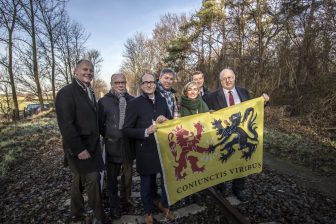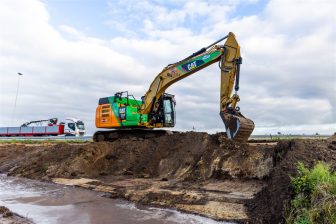$151 Mln for rehabilitation national roads Indonesia
Manila, Philippines – The Asian Development Bank (ADB) will help boost trade in Indonesia and promote regional cooperation by helping to rehabilitate national roads along trans-island corridors in Sumatra and Kalimantan, through a loan approved today of US$151 million.
The project will rehabilitate about 1,300 kilometers of deteriorated roads and replace or widen about 40 bridges on the Trans-Sumatra Central and Eastern corridors and Trans-Kalimantan highway, which links producing areas and markets through 10 provinces on the country’s two largest islands.
The roads also serve interregional trade by providing a corridor from Indonesia to the Association of Southeast Asian Nations (ASEAN) highway through links with Malaysia and Brunei Darussalam. The Kalimantan highway, in particular, is a major link between Brunei, Indonesia, and Malaysia.
“By improving the condition of these high-priority transport links, the project will boost trade and investment, promote regional cooperation, and improve accessibility and living conditions in isolated areas,” says Manzoor Rehman, the Project Team Leader. “As such, it will boost economic growth and improve the welfare of the poor.”
With scarce financial resources after the 1997 Asian financial crisis, spending on transport infrastructure, specifically roads, was cut out from the Government’s budget. Despite recent funding increases and a renewed emphasis on maintenance, roads have not yet returned to their pre-financial crisis conditions.
The deteriorated roads have increased transport costs for the agriculture, plantation, petroleum, and industrial sectors in Sumatra and Kalimantan. These increased transport costs are passed on to consumers, who pay higher prices to travel or to move commodities. As such, their mobility and access to economic and welfare opportunities is limited.
“With fiscal constraints likely to remain, external support is critical to preserving, upgrading, and developing priority links and supporting economic recovery,” says Mr. Rehman.
To ensure that the rehabilitated roads do not deteriorate prematurely, the project will include measures to reduce damage caused by overloaded trucks. It will also explore new ways of using available resources to maintain roads and reduce the risk of accidents in roadside communities through increased awareness.
ADB has assisted Indonesia’s road sector since 1976, with total lending to the sector so far amounting to $1.57 billion for 15 projects.
ADB’s loan will cover 70% of the project’s total cost, estimated at $215.8 million. The loan comes from ADB’s ordinary capital resources and carries a 25-year term, including a grace period of five years. Interest will be determined in accordance with ADB’s LIBOR-based lending facility.
The Government is contributing $64.8 million toward the project. The Ministry of Public Works is the executing agency for the project, which is due for completion around June 2010.
U las zojuist één van de gratis premium artikelen
Onbeperkt lezen? Profiteer nu van de introductieaanbieding voor € 10,- per maand.
Bent u al abonnee?



